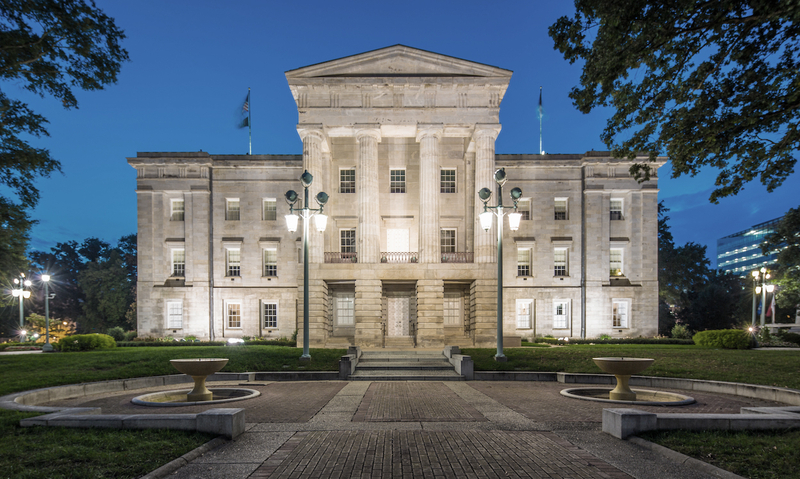Compute North, which planned to build a cryptomining center in Greenville, declares bankruptcy


Compute North, which had planned to build a large cryptomining facility in Greenville, has declared bankruptcy, according to court documents dated Sept. 22.
Filed in the Southern District of Texas, the bankruptcy applies to the company’s main entity, as well as its subsidiaries spanning several states. That includes Compute North NC09, incorporated in North Carolina.
The company owes between $100 million and $500 million, according to the filings. None of the listed creditors are in North Carolina. The value of its assets are within the same range.
Compute North is headquartered in Minnesota. It hosts cryptomining centers in Big Spring, Texas; Kearney, Nebraska; and North Sioux City, South Dakota.
The company generated $34 million in revenue in 2021 from hosting cryptomining operations, according to court filings. Two other centers, in Corpus Christi, Texas, and Minden, Nebraska, remain unfinished because of the company’s financial difficulties.
The company tabled its proposed Greenville facility in May, citing the “uncertainty of energy costs.”
Compute North became cash-strapped because of “a confluence of events that severely impeded” the company’s development of several new facilities, court filings read. Bitcoin prices have nosedived to nearly 75% below its all-time highs, while electricity rates have doubled.
The company also encountered a financial dispute with one of its financers, Generate Lenders. It had previously fronted $300 million to Compute North to build cryptomining centers in Kearney, Nebraska, and Granbury, Texas.
In July, Generate seized some assets of Compute North, including $23.6 million in bank accounts of the Kearney and Granbury operations – “disrupting” Compute North’s business operations,” court filings read.
Compute North still owes $101.3 million to Generate. The lender stopped financing new projects, and “new funding sources did not materialize,” court documents read.

The bankruptcy filings offer an inside look at some hidden aspects of the cryptomining industry. For example, in addition to hosting cryptomining centers, Compute North mines its own bitcoin and converts it to U.S. dollars each day. That segment of the business generated $12 million in revenue last year.
Cryptomining centers are often controversial because racks of high-speed computers and air conditioners consume enormous amounts of electricity, in some cases as much as small countries. Court documents called this a “public perception problem.”
To overcome those problems, Compute North hired Bootstrap Energy to help it select new sites and secure property tax abatements. The Urban Solution Group, which is owed $71,637, also navigated local and state regulations on behalf of Compute North.
While the crypto industry claims it contributes to renewable energy development, it largely has tapped into fossil fuel sources. This year, high energy costs have made it difficult for bitcoin miners “to profitably operate during certain periods of the day” due to fluctuations in prices.
In North Carolina, the company had initially eyed a parcel in Pitt County, outside the Greenville city limits, near a Black and Latino neighborhood and across the street from a school, Southerly magazine and Enlace Latino previously reported.
In November 2021, opponents protested over concerns about the effects of noise pollution on residents and students from the hundreds of air conditioners needed to keep the computers cool. Compute North withdrew its plan shortly before the Pitt County Commission was scheduled to vote.
Computer North then turned to Greenville, also in Pitt County, where it hoped to build within the city limits, Policy Watch reported. Last January, the economic development group, Greenville Eastern North Carolina Alliance, successfully petitioned the City Council to approve a rezoning. That allowed the company to build a facility, as long as the property was at least 35 acres and in an industrial area.
At the January meeting, Tony Cannon, general manager and CEO of the Greenville Utilities Commission said it would enter into a five-year power purchase agreement with Compute North. The GUC buys power from Duke Energy.
There is enough capacity on the Greenville grid to meet the company’s demand for an extra 150 megawatts of power, Cannon said at the time. (For context 150 megawatts is equivalent to more than twice the output of Duke Energy’s solar farm in Maiden, North Carolina.)
Cannon said during the meeting that revenue from Compute North’s power bills could help offset costs of Greenville’s infrastructure upgrades.
However, in Big Spring, Texas, Compute North didn’t pay part of its utility bill. The company owes the city nearly $25,000.








